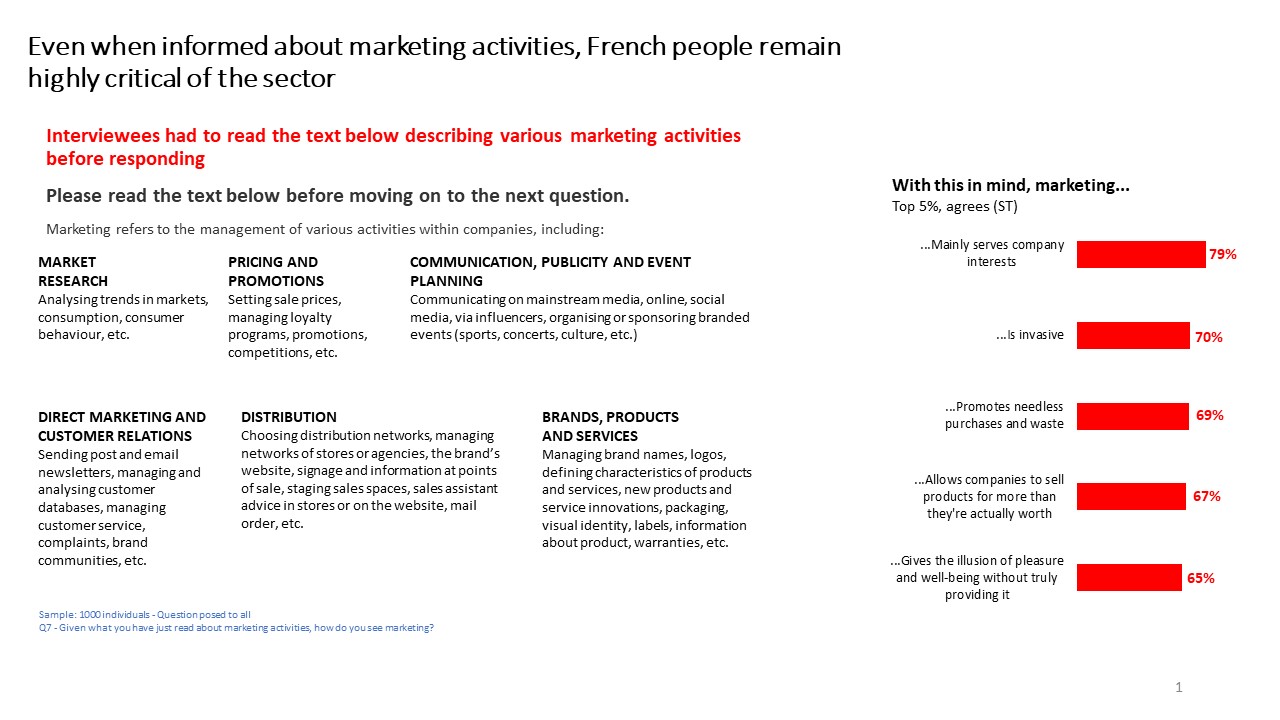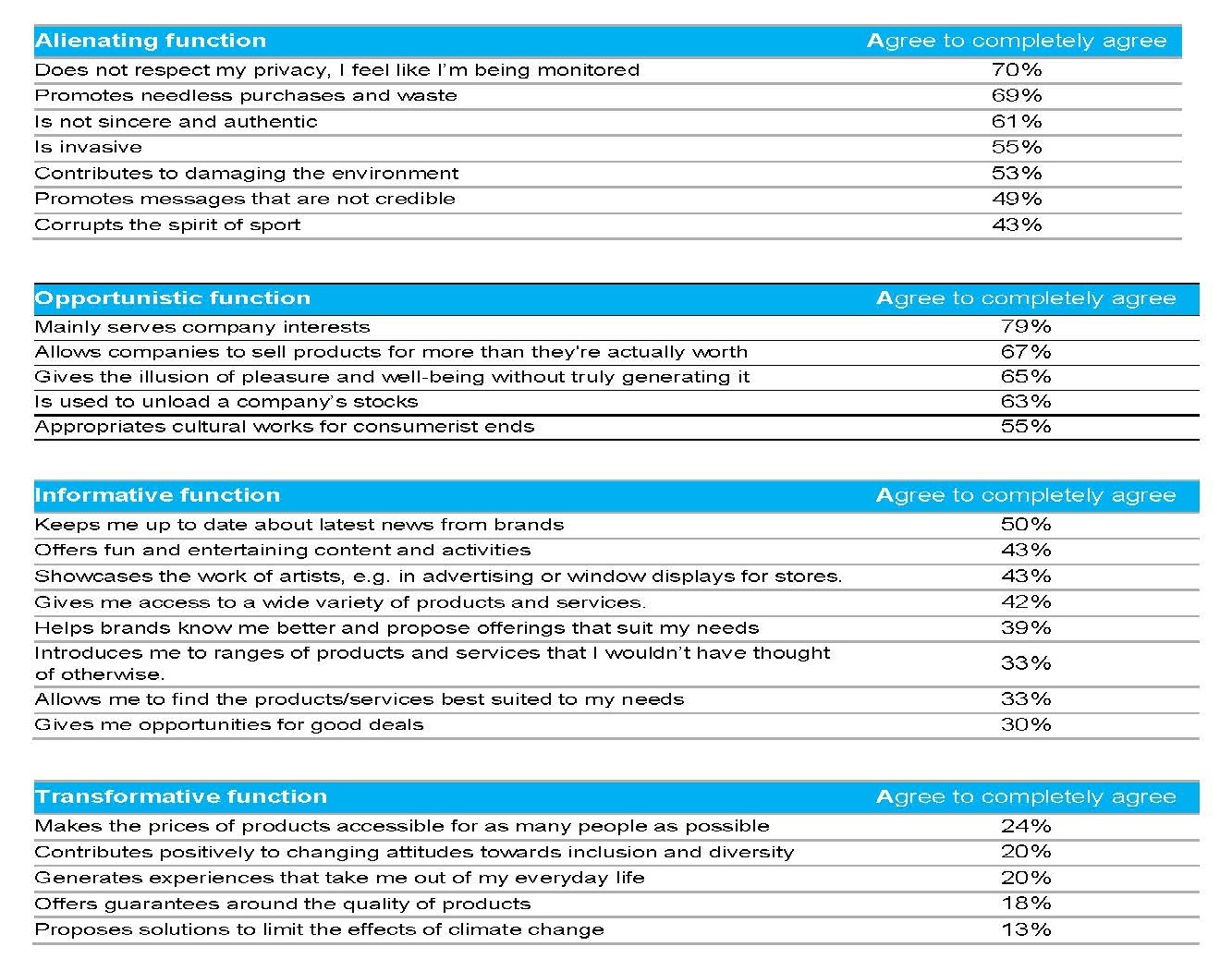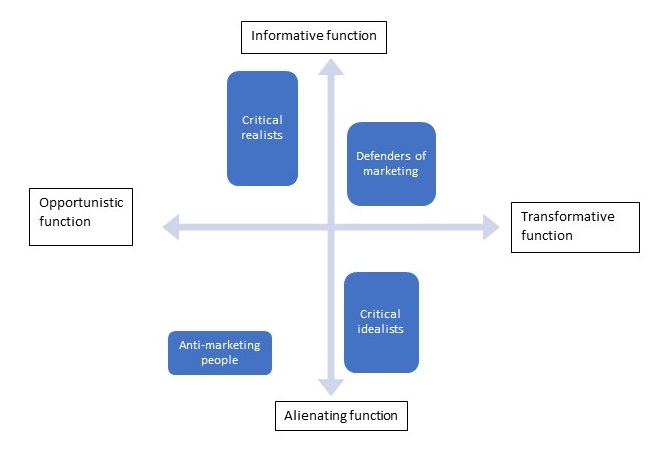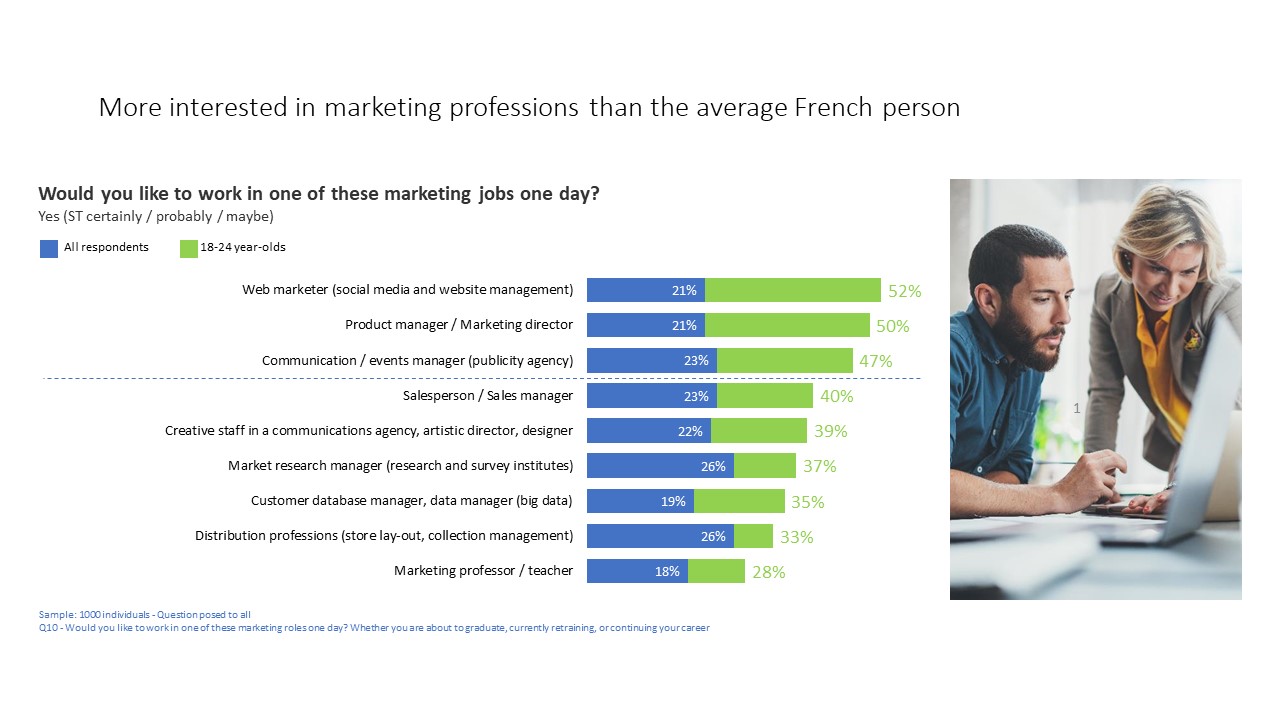How to republish
Read the original article and consult terms of republication.
One-third of French people have a negative image of marketing

Photo credit Epictura (231856778 Anton Matyukha)
From No logo in 1999 to La main visible des marchés in 2022, there have been many books and reflections challenging the power of marketing, so much so that this word is often disparaged and negatively connoted. In common language, the expression “it’s just marketing” refers to the trivial or even untruthful nature of marketing for a product or service, as well as the intrusive or even manipulative side of sales practices.
However, the French Marketing Association (AFM) gives the following definition:
"Marketing is a specific vision of exchanges that should be equitable and involve value creation for all stakeholders (individuals, organisations, institutions)."
Marketing therefore has a great responsibility in the face of environmental and social challenges: to help transform markets by supporting equitable and sustainable changes to modes of production and consumption.
So where does this split between the identity and image of marketing come from? To understand it, Kantar and the AFM performed a study study on a sample of 1,000 people, representative of the French population.
It may have a bad image, but...
Two main conclusions can be drawn from this research: firstly, marketing professions have a negative image for 33% of French people, versus 23% who see them positively, and 44% who are neutral. It should be noted that the perception of publicity jobs is even worse, with 48% of French people seeing them negatively versus only 17% positively.

The second is that marketing is spontaneously associated with negatively connoted terms: scam, lies, harassment, over-consumption. The word cloud above was generated from responses to the first open question, “when you think of marketing, what ideas, words, emotions or images come to mind?”. It shows that marketing is reduced to publicity and sales, as well as the associated negative clichés.
The study participants were then exposed to an informative text describing various marketing activities (see figure below) for a certain amount of time. The objective was to offer respondents a more factual and comprehensive vision of practices involved in marketing as a profession, to go beyond clichés and facilitate an informed evaluation.

When we examine the beliefs underlying the image of marketing, we can see that four functions are associated with marketing practices..
The negative beliefs amount to two functions, the potential to alienate and the opportunism of marketing operations, while positive views are summarised under the informative and transformative functions. Although the latter two explain the essentials of marketing’s image, the majority of French people think that marketing acts more in an alienating and opportunistic way than an informative and transformative way, though it may have the power to do so.

In concrete terms, marketing practices do not fulfil their contract, information is considered inauthentic and discourse around individual or societal well-being is highly present in promises made to consumers, but seen as insincere.
Unattractive careers, except for young people
However, we should provide some nuance, as French people do not all have the same opinion of marketing. A more in-depth analysis of beliefs shows that four profiles can be identified. The anti-marketing group (17%) sees marketing negatively (average of 2/5) due to its alienating and opportunistic functions. Critical idealists (25%) reject marketing for its power to alienate, but recognise its potential usefulness for society via its transformative function. But in their view, this lever is not yet sufficiently present and credible, so their image of marketing is mixed (2.9/5 on average).
Critical realists (33%) have the same score for their view of marketing, but believe more in its capacity to inform. However, on the whole, they think these tools are opportunistic. Lastly, defenders of marketing (25%) believe that it is useful for consumers and society thanks to its role to inform and transform markets.
This group is significantly more male-dominated than the three others, which are more female-dominated. However, this group’s average view of marketing is not very high (3.4/5), which implies that they want marketing practices to improve in their two main functions.

In line with the poor score for the general view of marketing, the desire to land a job in the marketing sector was very low in our survey (on average, 1.80 on a scale of 1 to 5), ranging from a mere 19% of people who would like to become a marketing professor, to 27% who would like to work in the retail sector (compared to 61% who would like to work for the police).
However, the younger the respondent, the stronger the desire to work in marketing (see below).

In short, most French people have a critical view of marketing, with clear expectations - that it be informative, considerate and minimal. Companies must build a relationship of trust with consumers, and with stakeholders more generally, by implementing a sincere and authentic discourse that corresponds to the true conditions of production (environmental and social).
As a consequence, it is part of our responsibility and scientific integrity as researchers and faculty to analyse the overall performance of marketing activities. This will make it possible to identify practices that are ineffective and destroyers of value from an environmental and social perspective. Furthermore, this will make it possible to identify relevant and effective solutions for organisations to respond appropriately to climate and social crises.
Pierre Gomy, Head of Marketing, Central and Southern Europe at Kantar Insights, contributed to the writing of this article.
Identity card of the article
| Original title: | Le marketing souffre d’une image négative auprès d’un tiers des Français |
| Authors: | Amina Béji-Bécheur, Alain Decrop, and Lydiane Nabec |
| Publisher: | The Conversation France |
| Collection: | The Conversation France |
| License: | The original version of the article was published in French by The Conversation France under Creative Commons license. Read the original article. An English version was created by Hancock & Hutton for Université Gustave Eiffel and was published by Reflexscience under the same license. |
| Date: | June 15, 2023 |
| Languages: | french and english |
| Keywords: | consumption, marketing, publicity, sales, clichés |

![[Translate to English:] Licence creative commons BY-SA 4.0 [Translate to English:] Licence creative commons BY-SA 4.0](https://reflexscience.univ-gustave-eiffel.fr/fileadmin/ReflexScience/Accueil/Logos/CCbySA.png)